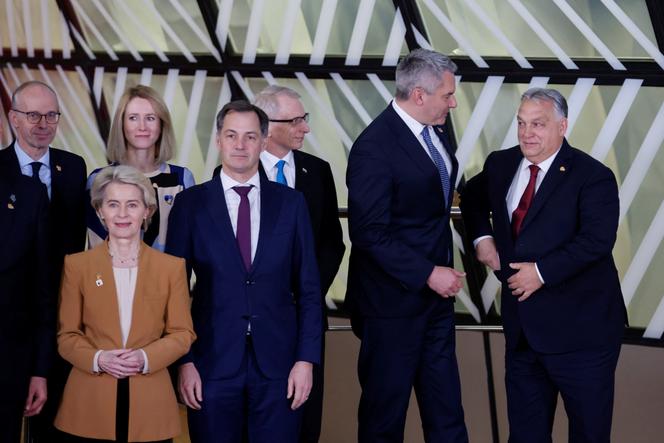


Viktor Orban's Hungary isn't the only one driving discussions in Brussels. There's also Austria. While the two countries disagree on many issues, one issue unites them more than anything else and has for a long time: Their support for the Balkans. Vienna and Budapest are preparing to speed up the entry of their neighbors, all candidates for European Union (EU) membership: Albania, Bosnia-Herzegovina, Kosovo, Northern Macedonia, Montenegro and Serbia.
On the eve of a European Council that will be decisive for the future of the region, a summit was held on Wednesday, December 13, bringing together the leaders of these six EU candidate countries and their European counterparts. In addition to opening accession negotiations with Ukraine, the 27 heads of state and government of the member states must decide whether to authorize negotiations, subject to certain conditions, with Bosnia-Herzegovina, whether to speed up negotiations with Albania and Montenegro, and whether to resume stalled talks with Northern Macedonia – decisions that Austria and Hungary in particular are calling for.
In Vienna, it is said that the Balkans begin once you pass the Ring Road that encircles the Austrian capital. "Bringing the Western Balkans into the European Union is a real Austrian obsession," confided a European diplomat, observing the insistent lobbying of Austrian diplomacy in this area – a policy pursued since the war in former Yugoslavia and Austria's entry into the EU in 1995.
"Austria has strong cultural and historical ties with the region," recalled Paul Schmidt, Secretary General of the Austrian Association for European Politics (ÖGfE). "The country," he added, "is one of the most important investors in the region, and its diplomats regard it as a zone of influence. In fact, the geopolitical stabilization of the Balkans is a priority for Viennese diplomacy."
Although Serbs and Bosnians are among Austria's largest minorities, its public opinion remains reserved on the question of Balkan enlargement, according to a poll published on Tuesday by the European Council on Foreign Relations (ECFR) think tank. However, as Austria is one of the most important investors in the area, with its Raiffeisen bank as a bridgehead, the government and employers strongly support this prospect.
In Budapest, the neighboring Balkans are just as important. So much so that the country wants to make them the priority of Hungary's EU presidency, which begins in July 2024. "Since Viktor Orban's return to power in 2010, Hungary has become one of the main players in the region," noted researcher Ivana Rankovic of the Belgrade Centre for Security Policy. "Orban's aim is to make Hungary a regional power. And the Balkans are a means to that end." The fact that Oliver Varhelyi, the Hungarian commissioner reputedly close to the prime minister, is in charge of Europe's neighborhood policy, is no coincidence.
You have 35% of this article left to read. The rest is for subscribers only.
